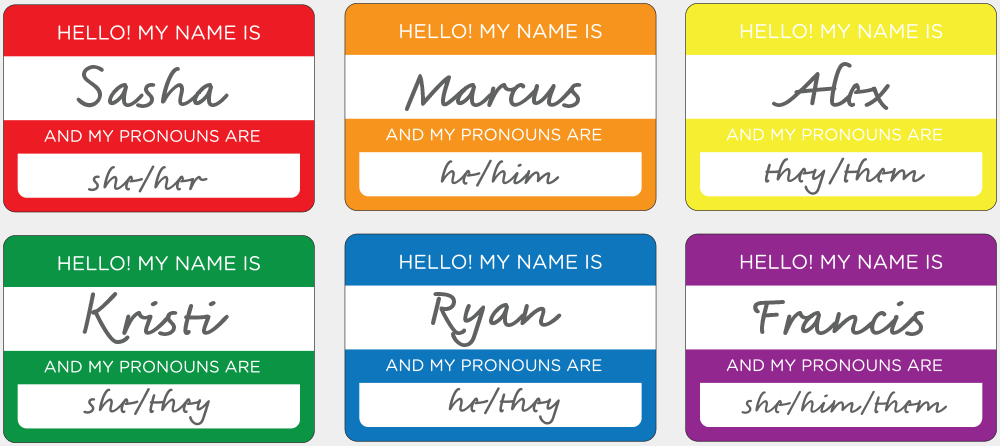
In the August COVID-19 Recovery Dashboard, planners who seek attendee gender pronoun preferences said they collect the information to use on event name badges.
Nearly nine out of 10 planners responding to the August COVID-19 Recovery Dashboard said they do not ask registrants to identify their gender with non-binary response options. The results from a 2021 national study, conducted by the advertising insights agency Bigeye, suggest that organizations seeking to attract younger members and conference participants may want to rethink that.
For the “Gender: Beyond the Binary” study, researchers polled more than 2,000 U.S. adults from a wide range of “gender identities, generations, socioeconomic backgrounds, and geographic locations,” according to a story on the next-generation community platform them. Half of the Generation Z respondents (ages 18-24) agreed that traditional gender roles and binary gender labels are outdated. Moreover, more than half (56 percent) of the respondents in the generation preceding them (Millennials, aged 25-39) had the same response.
Billy Kolber, founder of HospitableMe, an LGBTQ-focused strategy, marketing, and training service, told Convene that organizations holding meetings and conventions who want to be more relevant to younger audiences need to recognize that people “come in more than just two genders.”
“Biologically, it’s estimated that non-binary people are as common as redheads,” Kolber said. “Granted, many of those people identify on a binary. … But the incidence of non-binary humans is much greater than people imagine.”
In the August Dashboard, Convene asked planners: Are you asking registrants to identify their gender with non-binary options? If they responded yes, we asked them to write in how they are phrasing the question and for what purpose/s they are collecting this information.
RELATED: 10 Best Practices to Make LGBTQ+ Attendees Feel Welcome
Just 12 percent of the 329 Dashboard respondents said they ask about gender on their registration forms, and several of those who wrote in said they make that question optional. “We started doing this pre-pandemic,” one planner wrote. “We give them the option to indicate their gender [pronoun] preference on their name badge to show we respect their gender identity and phrase it as, ‘We respect everyone’s gender identity. If you would like to state your gender pronoun on your name tag, please select from the following: (drop down menu w/options).’”
Several respondents also said they collect the information to use on event name badges. Others stated they use gender information to track event and/or membership diversity, expansion of DEI efforts, and content planning for future meetings.
While the majority of the write-in respondents said they collect attendees’ preferred pronouns, others said they ask for their gender identification.
In “Respectful Collection of Demographic Data” on Medium, author Sarai Rosenberg, who redesigned the demographics form for the Sacramento LGBT Community Center, suggested people writing demographic surveys need to determine whether they need all of the information they ask. “Don’t ask about the user’s gender when you only need to ask what pronouns they prefer,” she wrote.
Rosenberg offered other tips for writing demographic questions, among them:
- Explain your purpose and your privacy policy. Your attendees or members will be more comfortable providing answers if you explain how you will use the information, how it benefits them, and how you will protect their data, Rosenberg wrote.
- Offer multi-select checkboxes, not single-select radio buttons in drop-down menus, because a user could potentially identify as multiple options on the survey, such as non-binary and female.
- Allow users to self-describe. Leave a write-in space for users in case they feel the categories you’ve provided don’t fit them.
- Don’t make this response a requirement to complete the form. Cheers to all the planners who make these questions optional.
Curt Wagner is digital editor at Convene.
